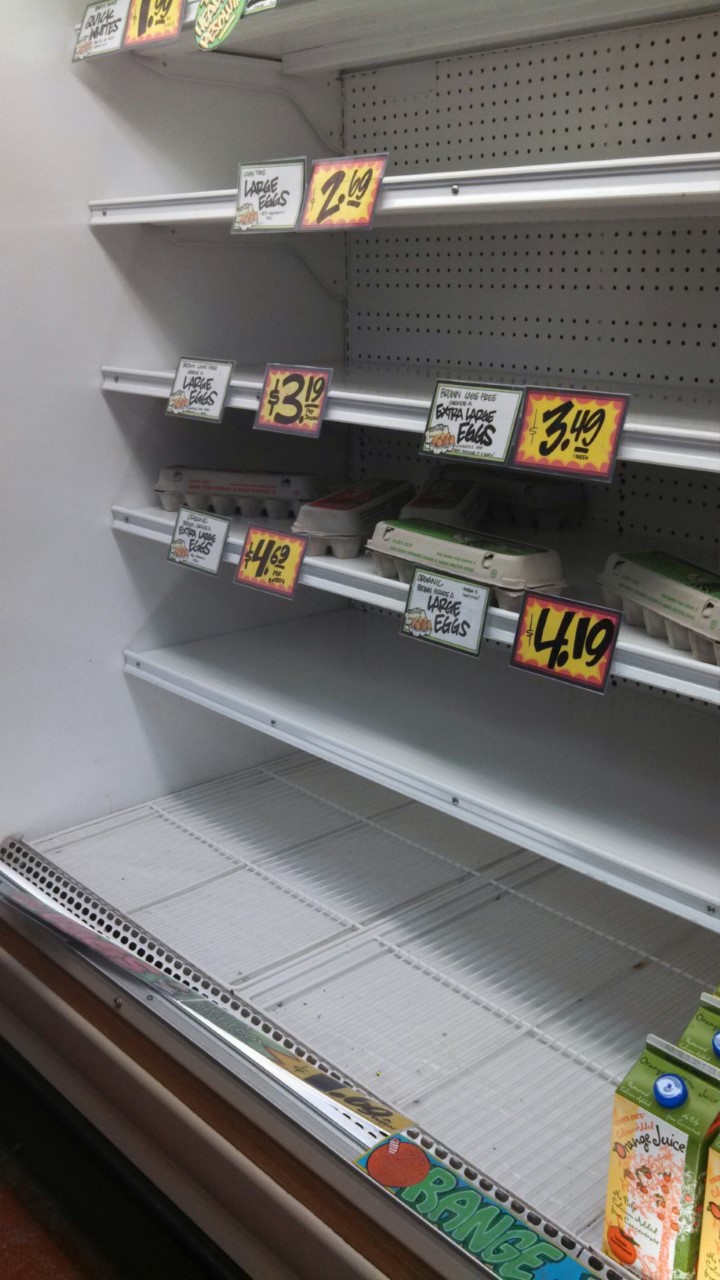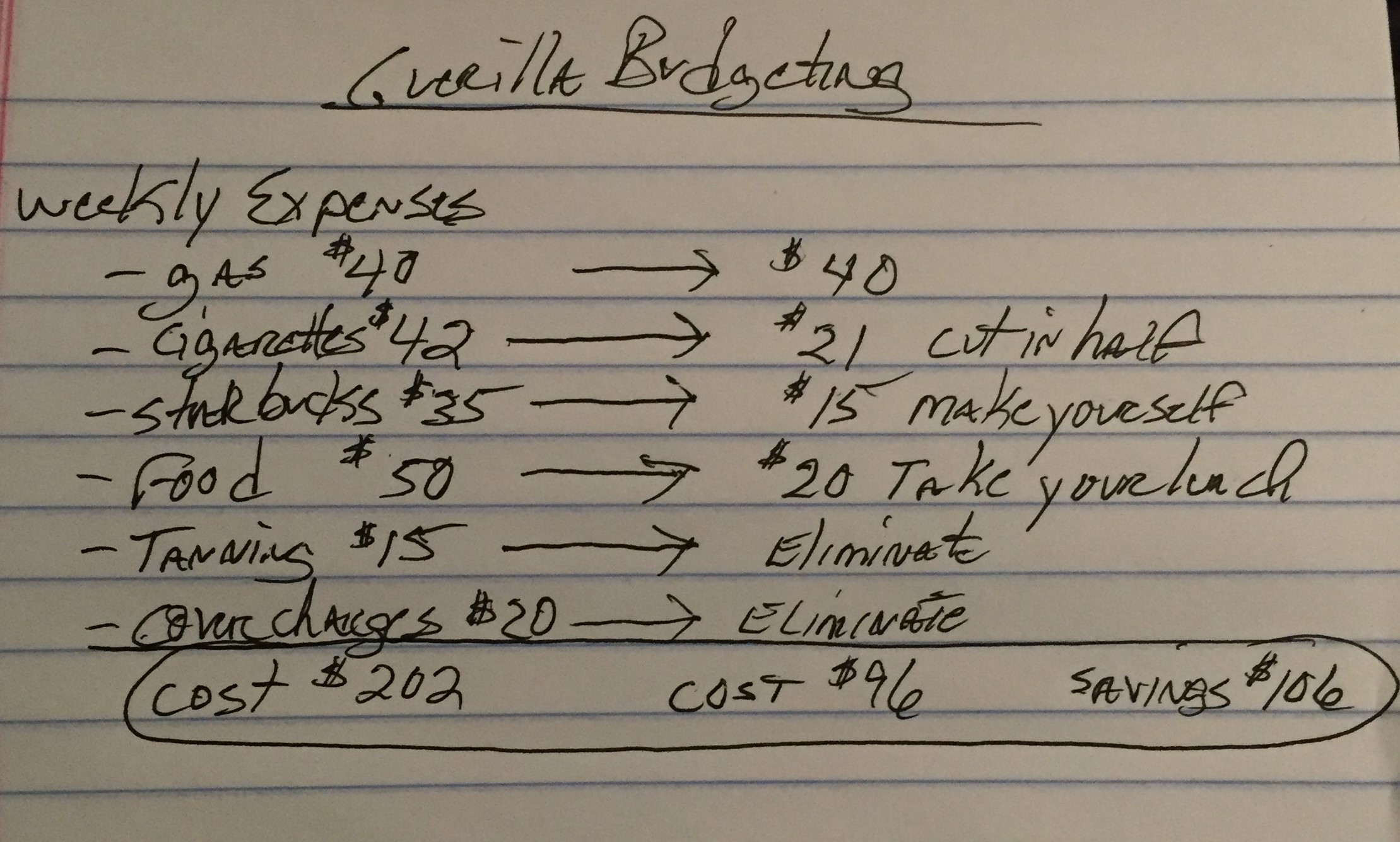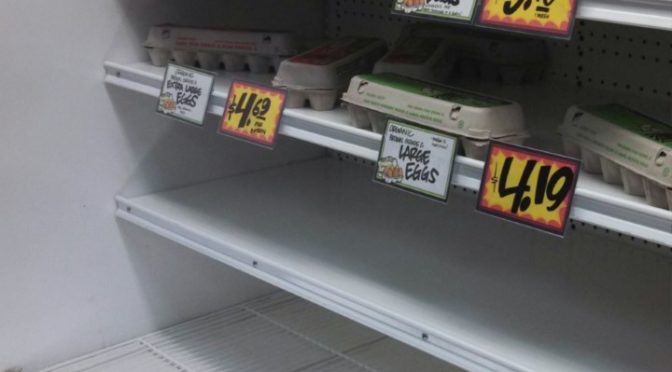by Mark Bunch/President Royal Gorge Gun Club/Chairman Fremont County NRA
Why you should prep
The world we live in is a very dangerous and unforgiving place. Unless you are lucky enough to own a farm where you can grow all your own food, you are dependent on shopping at a store for all your necessary items. Those stores that you shop at are all dependent on just-in-time resupply since on hand inventory is purposely kept as small as possible. That sounds great and saves a ton of money on inventory storage costs. God forbid anything happens to our transportation system. Store shelves will be empty in short order and as anyone can tell you that ever lived through an earthquake, flood, hurricane or tornado, it is very eerie seeing all the shelves in the grocery store bare.
 I sometimes get into conversations with people who have never thought about prepping before and most of the time the reason cited is budget constraints. I completely understand this mind set as I have had times in my life before when it was all I could do to meet my bills working multiple jobs. Even with limited income you can take steps to prepare and become more self-reliant you just have to take baby steps at first. I have always considered prepping and being self-reliant similar to an insurance policy for uncertain times. We all have to buy car insurance, health insurance, home-owners or renters insurance and even though it is more and more expensive it is a necessity. Once you think about being prepared for emergency situations in the same mindset as insurance it becomes easier to figure out how to allocate funds for the purpose.
I sometimes get into conversations with people who have never thought about prepping before and most of the time the reason cited is budget constraints. I completely understand this mind set as I have had times in my life before when it was all I could do to meet my bills working multiple jobs. Even with limited income you can take steps to prepare and become more self-reliant you just have to take baby steps at first. I have always considered prepping and being self-reliant similar to an insurance policy for uncertain times. We all have to buy car insurance, health insurance, home-owners or renters insurance and even though it is more and more expensive it is a necessity. Once you think about being prepared for emergency situations in the same mindset as insurance it becomes easier to figure out how to allocate funds for the purpose.

Survival Mindset
Are you willing to do whatever it takes to protect your family? If the answer to that is yes, you are well on your way to developing a survival mindset. Most if not all of the readers of this publication already understand how important this concept is and for those of you who are new to self-reliance and prepping you need to catch up fast.
Most people who get into the prepping movement do so for a particular reason. Gun rights/Second Amendment concerns are always a big draw as it is scary seeing what happens in places where an individual’s right to self-defense is infringed on. Regardless of what reason brings you into the prepping movement you need to learn all that you can about every aspect of self-reliance/preparedness. Learning how to grow your own food, how to hunt, fish, protect yourself hand to hand, how to navigate by the stars and basic first aid are all subjects you need to learn about. Could you start a fire if you didn’t have any matches? What about performing CPR on your child if they fell through the ice and weren’t breathing? Being prepared is as limitless as your imagination, and my advice is read about as many things as you possibly can. You came into this world kicking and screaming and if you are like me, that is exactly how you are going out.
Getting your family/spouse involved
Once you have decided to work at becoming prepared you are going to have to get your family on board. This should be fairly straightforward and hopefully not too difficult to accomplish. Start by explaining how you came to your conclusions and be sure to site examples to help paint the picture for them. It has been my experience that most spouses will understand and go along with a preparedness plan and children might take a bit longer. The key to success is getting everyone involved and participating as your preparedness plan evolves.
Guerilla budgeting/eliminating unnecessary items
There are numerous ways to carve out a few bucks each week to put toward preparedness items. Any unnecessary thing you do such as smoking, drinking or recreational drug use can be trimmed down and then completely eliminated from your budget saving you lots of money and your health. Instead of going to Starbucks for $9 coffee, why not stop at Dunkin Donuts or make your own before you leave your house in the morning? You can always just give it up and save yourself mucho dinero and make yourself healthier in the process!
Making your lunch and taking it with you is way cheaper than eating out every day and you will be healthier for doing it. Do you really need that expensive gym membership and the tanning salon? Look at what you spend and what you spend it on. I am sure you can find ways to trim a few bucks here and there.
Another somewhat outdated concept these days is the use of coupons. As a young man living on my own I used to work at a newspaper and we would print coupons in every Wednesday edition of our newspaper. I would go through the paper and cut out coupons for everything under the sun because it allowed me to buy things for less making my paycheck go further. You can still do this today and every dime you save on an item can be funneled into your preparedness plans.
You can also sell your unneeded items in yard sales to help make a few extra bucks to put into your new preparedness plan. I usually do one or two yard sales a year and make somewhere between $150 and $300. You are never going to get rich doing yard sales but every little bit helps.
Allocating your resources
Once you have carved out some funds for survival preps you need to make a plan on where to invest these. I recommend having categories such as self-defense, food, water, bug out supplies, firearms/ammunition, transportation, communication, first aid supplies, clothing and barter.
You may already have a few guns so that may be a back burner item for a time until you get your food supplies, water and first aid kit items up to par. I have always believed in redundancy in our survival preps so I always layer my supplies. For example, starting a fire can be done in numerous ways. How many could you accomplish right now? Matches, lighter, flint and steel, magnifying glass? Same with every other aspect of your gear, look for ways to accomplish the same thing with different items and tools.
Make sure that you get everyone outfitted with the base items first before you work on redundancy plans. It makes absolutely no sense to have dozens of guns and enough ammo to fill a box car and not have ponchos or cold weather gear for everyone in your family.
Changing how you shop
When you go to the grocery store to shop buy a couple extra cans of durable goods such as corn, green beans or peas. They are relatively cheap and store for years. After a few trips to the store your pantry will fill up giving your family an extra buffer just in case you need it without bankrupting your family to get there.
Whenever possible, buy the house brand of something instead of the more expensive brand name. We do that with most of the food products we buy and get very good quality or the same quality while also saving money.
Buying things online are a good way to save money as most places will give you free shipping and you also get out of the tax depending on where you buy your items from.
Being Disciplined
Now that you have a plan, have your family on board and have figured out how to save money/eliminate unnecessary items from your budget you have to stay committed. Doing anything for a few weeks at a time will not get you anywhere, you have to stay the course. Once you attain a level of independence and self-reliance it is a very liberating and rewarding feeling to know that if something dire were to occur you could protect and provide for your families’ basic needs.
The general wisdom is that it takes about three weeks to make something a habit and about six months to make it your life. This is one of the most important things you will ever do for yourself and your family and the time to get started is now.
Do something every day
One of the things that I practice is to do something positive every day. I plant something, harvest something, add something to my pantry or try to learn something new each and every day. Knowledge is power and the more you learn about the more you will be able to prepare for and deal with when the situation is critical.
Watch for bargains and things you can purchase that will make great items to bargain with like salt, pepper, toilet paper and soap. All of these items are very cheap to acquire and will help you barter for things you don’t have in the event that the local grocery stores run out of them.
I buy things like candles and extra socks and small bottles of alcohol to use for bartering just in case, too. One thing to keep in mind as you travel on your journey to self-preparedness is that there are people out there whose plan is to do nothing whatsoever, then rob you of your supplies. No doubt many, if not all of us have idiot neighbors living right next door who do nothing proactive and will no doubt be one of your biggest threats in times of strife. Readers are advised to be careful of who you tell about your preparedness items and for God’s sake don’t take pictures of your supplies and upload them to YouTube or that worthless facebook, lol.

